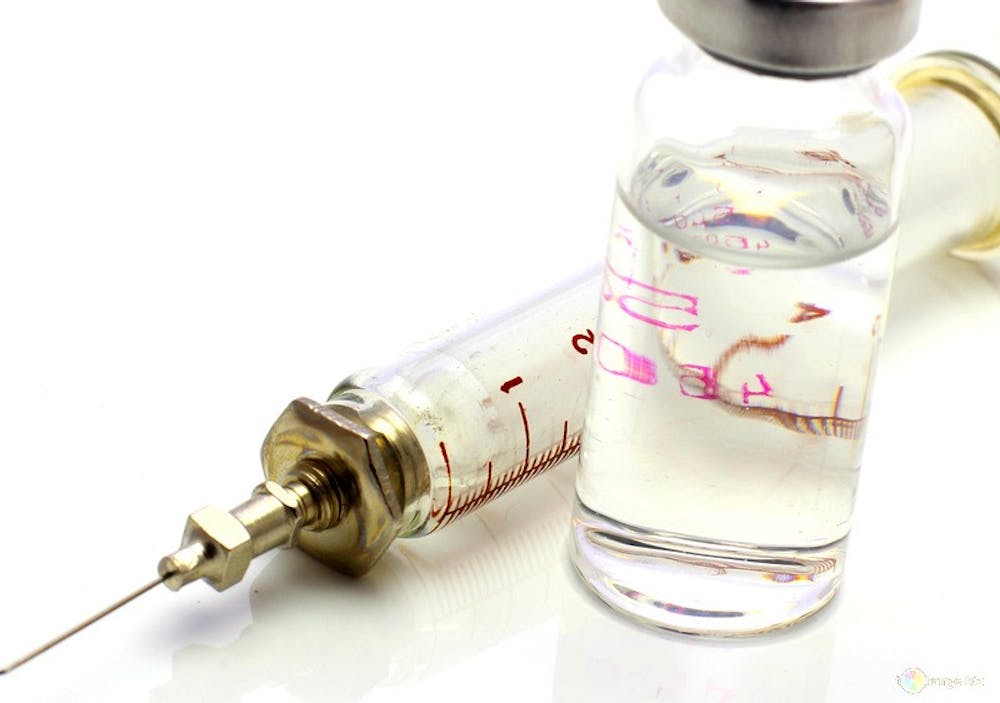According to a new study published by the Journal of Clinical Endocrinology and Metabolism, male birth control was tested for the first time. A new way of preventing pregnancies, these “birth control shots” were given to sexually active males.
According to the results of a survey sent out by the Guttmacher Institute, 40 percent of all pregnancies worldwide were unintended in the year 2012.
Currently the only forms of birth control for men are condoms, vasectomies and withdrawal. However the study stresses the need for alternative birth control methods to be undertaken by men.
“The study found it is possible to have a hormonal contraceptive for men that reduces the risk of unplanned pregnancies in the partners of men who use it,”study co-author Dr. Mario Philip Reyes Festin of the World Health Organization (WHO) in Geneva, Switzerland said according to a press release. “Our findings confirmed the efficacy of this contraceptive method previously seen in small studies.”
320 men between the ages of 18 and 45 with normal sperm counts were recruited for the study. Participants also need to be in a monogamous relationship with a female partner between age 18 and 38 for at least one year prior to the start of the study.
Injections were given by health professionals every eight weeks for up to 56 weeks. The drugs used to suppress sperm count contained norethisterone enanthate, a long-acting progestogen, and testosterone undecanoate, a long acting androgen.
For the first part of this study, the men and their female partners were told to use traditional forms of birth control while the men received injections. During this phase, a semen sample was taken at eight weeks and then every two weeks until the sperm count was lowered to less than one million per millimeter.
The drugs were effective in reducing sperm count to this level in 274 out of 320 of the participants. At this point, the researchers instructed couples to discontinue other forms of birth control.
The results of the study showed that the injections were effective in approximately 96 percent of participants, with only four pregnancies occurring in the 111 couples who made it to the end of the efficacy phase of the study.
However, throughout the study participants noted mild to moderate side effects of the hormonal contraceptives such as depression and other mood disorders. Other side effects include injection site pain, muscle pain, increased libido and acne. In total, 1,491 adverse events were taken note of throughout the study; However, nearly 39 percent of these adverse events were concluded to be unrelated to birth control injections.
Recruitment and hormone injections ended in 2011 because one of the review boards were concerned about the high number of reported adverse events. In particular, the rate of depression in the participant group troubled the board — three percent of the men in the study experienced depression.
Comparatively, 30 percent of women report depression while on female birth control according to Elisabeth Lloyd, a faculty scholar at the Kinsey Institute, professor of biology and an adjunct professor of philosophy at Indiana University Bloomington.
“I think it’s kind of funny but not unexpected that they would discontinue a birth control trial for men because of adverse side effects even though women experience similar side effects while taking female birth control,” Hopkins senior Michael Guo said. “There seems to be a double standard and misogyny at some level.”
By the end of the trial, despite the side effects, more than 75 percent of the participants said that they would be willing to use injection male birth control.
“I would consider using male birth control if my partner did not want to use female birth control or had a latex allergy,” Guo said.
Sophomore public health major Timothy Lee stated that although males should be just as responsible as females for pregnancies, he doesn’t see the need for male contraception due to the effectiveness of condoms. Lee added that he personally would not try the new injection.
“I personally don’t think the hormonal side effects are worth the effects due to other preventative options,” Lee said. “However I believe that it’s a personal decision but that the potential adverse effects should be widely advertised.”
On the other hand, alumna Leslie Cunningham believes strongly that the side effects of the male birth control injection do not outweigh the benefits of the drug.
“This is a topic that is wildly important to me. As someone who ended up in the ICU due to a blood clot in my brain caused by none other than female hormonal birth control, I find it absolutely astounding that clinical trials for a safe and effective form of male contraceptive have recently been halted,” Cunningham wrote in a public Facebook post.
Cunningham added that reported adverse side effects of male birth control such as mood swings, acne and increased/decreased sexual drive are all symptoms that women on birth control suffer those symptoms every single day.
She closed her post with a line addressing males who oppose male birth control injections because of side effects.
“I had a stroke at 21 and still find a way to take birth control. You can deal with some damn acne,” Cunningham wrote.





